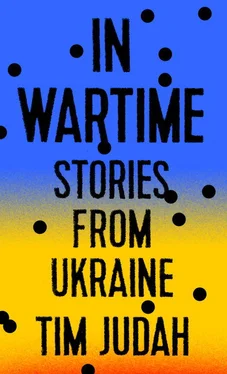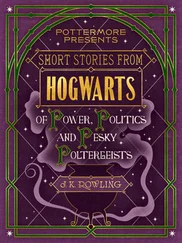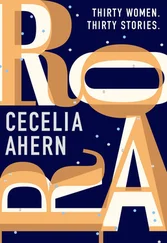Weaponizing History

Chocolate Putins. Lviv, November 2014.
Just because something is a cliché does not mean that it is not true. In his book 1984 George Orwell famously wrote: “He who controls the past controls the future. He who controls the present controls the past.” The war in Ukraine is not about history, but without using or, to employ the fashionable term, “weaponizing” history, the conflict simply could not be fought. There is nothing unique about this. In our times, in Europe, history was deployed as the advance guard and recruiting sergeant in the run-up to the Yugoslav wars, and exactly the same has happened again in Ukraine. In this way people are mobilized believing horrendously garbled versions of history. On the Russian and rebel side, fear is instilled by summoning up the ghosts of the past and simply ignoring inconvenient historical truths. On the Ukrainian side, the ugliest parts of history are ignored, as though they never happened, thus giving the enemy more propaganda ammunition to fire.
In this conflict the words “info-war” or “information war” have replaced the word “propaganda.” In one way that is fitting because fighting the info-war is more complicated than disseminating old-fashioned propaganda. The battlefields include Facebook, Twitter, vKontakte (the Russian equivalent of Facebook) and YouTube. On news and other websites tens of thousands of people “comment” on articles in such a way as to make them feel as though they are doing something useful. They are, as a boy who was about to start military training in Kharkiv told me, “sofa warriors.” But some it seems are mercenaries too. According to numerous reliable reports, the Russian authorities contract firms to employ people to “comment” and spread, among other things, the central line of Russian propaganda, which is that the Ukrainian government, after the Maidan revolution, is nothing but Nazism reincarnated.
What is odd is how much rubbish people believe, disregarding what they must know from their own experiences or those of their families. What has happened on the Russian side of the info-war, especially, bears close resemblance to the experience of Serbs in the early 1990s. Then, most of their media painted all Croats as Ustashas, after their wartime fascist movement, and Bosnian Muslims as jihadis. While of course, just as there were indeed then some admirers of the Ustashas, and some jihadis too, just as there are admirers of Ukraine’s wartime fascists now, the big lie is to give them a significance they didn’t and don’t have. As in the Balkans, the same is happening again: in Russia all of the mainstream media is following the modern party line. As the rebels seized control of eastern regions of Ukraine in April 2014, they moved quickly to take over local TV buildings and transmission facilities, turning off Ukrainian channels and tuning in to Russian ones. On the other side of the line, Russian channels were switched off and removed from cable packages. However, in the age of satellite TV and the Internet, it is not possible to deprive everyone of all information, bar that which you want them to see, but it is nevertheless remarkable how people so often accept what they are told. In this story, or “narrative” to use the technical term, history is something of a foundation and bedrock and this is why rewriting history is as important as writing the news. What you believe today depends on what you believe about the past. In that sense it is important for the “political technologists,” to use the pithy and apt term popular in post-Soviet countries, who might be understood by Westerners as turbo-spin doctors, to fashion a past which suits the future they are trying to create.
When Vladimir Putin, Russia’s triumphant president, spoke on March 18, 2014, to his parliament, the Duma, and other Russian leaders and announced the annexation of Crimea following its referendum, which took place with no free debate and was rammed through under the watchful eyes of armed men and Russian soldiers, he repeated the line that maybe even he believes, but certainly many Russians and those in rebel-held territory believe. There had been a coup d’état in Kiev against the lawfully elected government of President Yanukovych executed by “nationalists, neo-Nazis, Russophobes and anti-Semites.” Some of these there were, just as there are plenty of the same on the Russian and rebel side, but to tar the whole revolution in this way made sense only to people who actually wanted to believe it. For supporters from Western countries and other foreign admirers of Putin and the rebels, it also provided what seemed like a noble “anti-fascist” cause to belong to, rather than subscribing to an invented and racist interpretation of events in which all Ukrainians were fascists and the Russians or the rebels were heroic liberators. “We can all clearly see the intentions of these ideological heirs of [Stepan] Bandera,” said Putin, “Hitler’s accomplice during the Second World War.”
In Kiev I talked with Professor Grigory Perpelytsia, a former Soviet naval man, who now teaches at the Foreign Ministry’s Diplomatic Academy. We walked down the hill from the academy and ducked into a dark restaurant serving hearty old-fashioned Ukrainian cuisine, meaning mostly large portions of meat. Putin, he said, wanted Russian troops to be welcomed with “flowers and songs”—as they were by many in Crimea, though anyone who did not feel this way was hardly likely to be on the streets. In order to achieve this, he said, Putin had launched an info-war against “Ukrainian fascists” and Banderovtsi . Many were receptive to this kind of message, he explained, especially older people in Russia and to a certain extent in Ukraine, because many still retained a Soviet mentality, “want to go back to the USSR” and perceived Russia to be its inheritor. To burnish this image Russia exploited the victory of the Second World War and the symbols of the USSR, which disoriented people and confused them. In Ukraine, all this served to consolidate divisions which already existed. One of the great failings of the modern Ukrainian state is that it has never been able to create an all-encompassing post-Soviet narrative of modern Ukrainian history that was broadly accepted by most, if not all. The modern Ukrainian state has no common soundtrack of history, which for Britain for example includes Churchill telling Britons they would fight on the beaches and in the hills, or de Gaulle telling the French that they had lost a battle but not the war. Reality might have been more complex, but nevertheless there are no serious challenges to these modern narratives—even in France, where there was plenty of collaboration. In Ukraine’s case, however, the story is different and, as the conflict has shown, two baleful figures loom over it, those of Bandera and Stalin. Understanding this is essential to understanding Ukraine today.
In April 2014, as the war began, Ekaterina Mihaylova, aged thirty-five, ran the press office of the newly proclaimed Donetsk People’s Republic. She told me that she used to be a journalist. Her office was in the regional administration building in Donetsk, which had been seized by a motley collection of protesters and activists and surrounded by Maidan-style walls of old tires. There were posters of the European Union flag crossed out in red and reproduction Second World War Soviet posters urging people to watch what they said in case of spies. One picture showed an angry Putin spanking a naughty child Obama who was laid across his lap. A large misspelled sign in English pasted to a low wall decorated with mining helmets said: “NO FASHISM.” Someone had photocopied a photo of Red Army troops being welcomed into Donetsk in 1943, stuck it on the wall and written “Liberation of Donetsk” on the A4 sheet of paper. Why was there so much Soviet iconography?
Читать дальше













